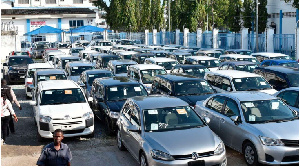Africa News of Friday, 4 August 2023
Source: theeastafrican.co.ke
Kenya vehicle dealers export sales in EA increase 39pc
Kenyan new vehicle dealers raised their exports to the East Africa market by 39.4 percent in the half year ended June, with the sales growth led by demand for trucks and buses.
Data from the Kenya Motor Vehicle Industry Association (KMIA) shows the companies, including Scania East Africa and Isuzu East Africa, sold a total of 191 units to the regional markets in the review period.
This was an increase from 137 units recorded a year earlier.
The exports went to Tanzania (132 units) and Uganda (59).
The bulk of the exports were prime movers and buses. The units assembled locally represent 45 of the volumes exported in the half-year period.
A Scania prime mover of the P360 series is the top-selling export model, moving 67 units followed by Isuzu FVR 34 bus at 28.
Locally assembled vehicles are expected to expand their price competitiveness relative to imports of fully built units.
This is due to Kenya’s recent move to raise the import duty on vehicles to 35 percent from 25 percent.
This has raised the impact of other successive taxes, ultimately making imported vehicles more expensive.
Vehicles shipped in fully built from markets such as Japan, the UK, and South Africa are charged an import duty of 35 percent, excise duty ranging from 25 percent to 35 percent, depending on the size of the engine and value-added tax of 16 percent.
Vehicle parts headed to assembly plants are exempt from import duty, giving them a price advantage in a policy designed to encourage local production.
The formal dealers have said their plants are operating below capacity, noting they are able to scale up production to meet regional demand.
There is a high demand for vehicles in East Africa but a greater preference for second-hand imports besides higher age limits has limited the opportunity for formal dealers.
The government has been rolling out incentives to support the growth of the local vehicle assembly, most being exemptions from taxes.
Entertainment










